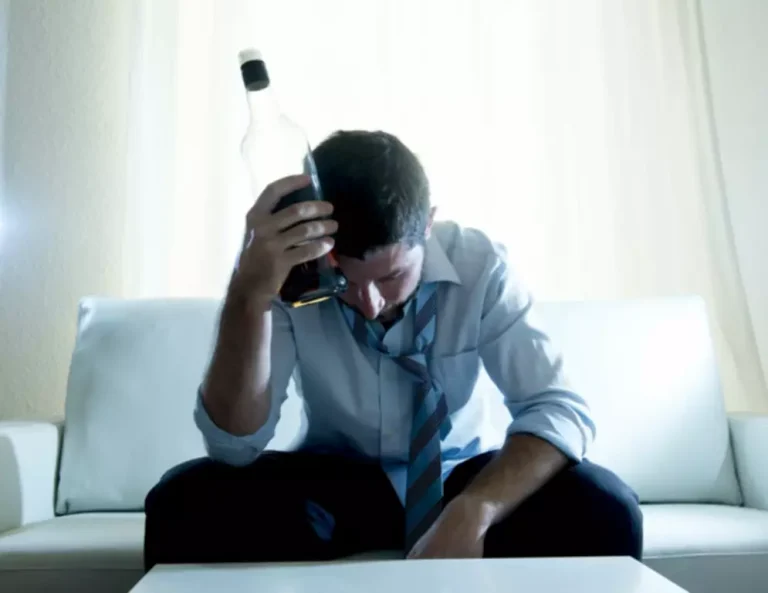
Recognizing the stages of addiction can make it easier to spot the severity of your loved one’s issue. This process is called the ‘addiction cycle,’ where a seemingly harmless habit can turn into a harmful dependence and eventually lead to chronic addiction. The earlier in the cycle that help is sought, the better the chances of avoiding the most severe consequences of addiction. However, it’s never too late to seek help and begin the journey of recovery.

What Type of Substance Use Disorders Exist?
- By having a support system, you’ll feel more motivated to deal with your addictive behavior than if you’re dealing with it alone.
- This is a key early intervention strategy, as a component of drug education.
- Different people feel ashamed because of different reasons, and what triggers shame in one person might not trigger shame in the next.
- It can affect various aspects of life, including relationships, careers, and self-esteem.
They are open to learning more about their addiction but will not commit to getting clean. Addicts can stay in contemplation for years without moving to the next stage. You can guide a person from this stage to the next by offering non-judgmental information and encouragement. Dependent addicts tend to use https://ecosoberhouse.com/ more of the drug to escape these symptoms, inadvertently pushing them further into the addiction cycle. Not all drug dependence is considered addiction; a person may be dependent on a drug for medical reasons. It’s important to note that addiction is a disease and not necessarily due to moral failure.
Role of Rehab in Breaking the Addiction Cycle
Yes, addiction is a chronic condition, but with rehabilitation, determination and patience, it is possible to break the grip of the addiction cycle. You should try and incorporate one or a couple of these substitute behaviors, which will help you completely break the cycle. Addiction primarily takes root in the brain, fundamentally altering its function and structure.
Kenyan Study Links Climate Change Fears to Mental Health Issues Among Youth
Some people are more habit-resistant than others, and some habits are harder to make than others. Healthy habits are just like any other habit, they require investment, effort, and routine. Basically, healthy habits will change your life and are worth whatever effort it takes to build them into a routine.
As tolerance and dependence continue, individuals feel more reliant on obtaining the feeling of euphoria, calmness, or the high they achieved when they first began using the substance. Oftentimes, tolerance becomes an issue with individuals who are struggling with severe addictions to substances, prompting them to turn to even more dangerous and high-risk drugs. While some of the reasons can be traced to mental disorders, others are motives that evolved out of a desire to escape a present situation. Physically, addiction causes the same chemical dependencies in the brain regardless of why drugs or alcohol were consumed in the first place. When these substances are ingested regularly, it can cause dependency and addiction to develop. As substance use becomes more habitual, the individual can find themselves stuck in the toxic cycle of addiction.
Ending the Vicious Cycle To Start a New Life
Instead, you should create specific and short-term goals that are more achievable such as avoiding an addictive habit for a week. Doing this helps motivate you and be more driven towards addressing your addiction problem. Examples of activities that cycle of addiction can help you keep yourself preoccupied include reading a book, watching the TV, taking a walk, or talking to a friend. Such activities help distract your brain from thinking of the addictive behavior or possible triggers, preventing a relapse.
Gratitude enhances health, brings happiness — and may even lengthen lives

Someone struggling with mental health issues or unresolved trauma may also turn to a substance to escape from the negative emotions. Each stage requires different strategies and support, and individuals might cycle through some phases multiple times. Understanding these phases helps frame the recovery process, providing a sense of progression and milestones to work towards. While the journey is challenging, each step forward is a move towards a healthier, more fulfilling life free from the constraints of addiction. Various triggers can lead to relapse, including stress, exposure to the substance or related environments, or mental health disorders.
- They assume that rehab doesn’t work and rule it out entirely when they try to break the addiction years later.
- There are three ways to “bind” yourself from – or place limits on – the behavior to which you’re addicted.
- If you or someone you know needs help for alcohol or substance abuse, call one of our treatment professionals today.
- At Boardwalk Recovery Center, we work closely with our clients to pinpoint their personal triggers and help them distance from their old ways.

An addict’s routine revolves around getting the next high and satisfying their urges daily. You would require new goals as you attempt to break the addiction cycle. Create new goals or revisit past ones that were derailed by the addiction. Having the right motivation sets an addict quicker on the path to recovery.
